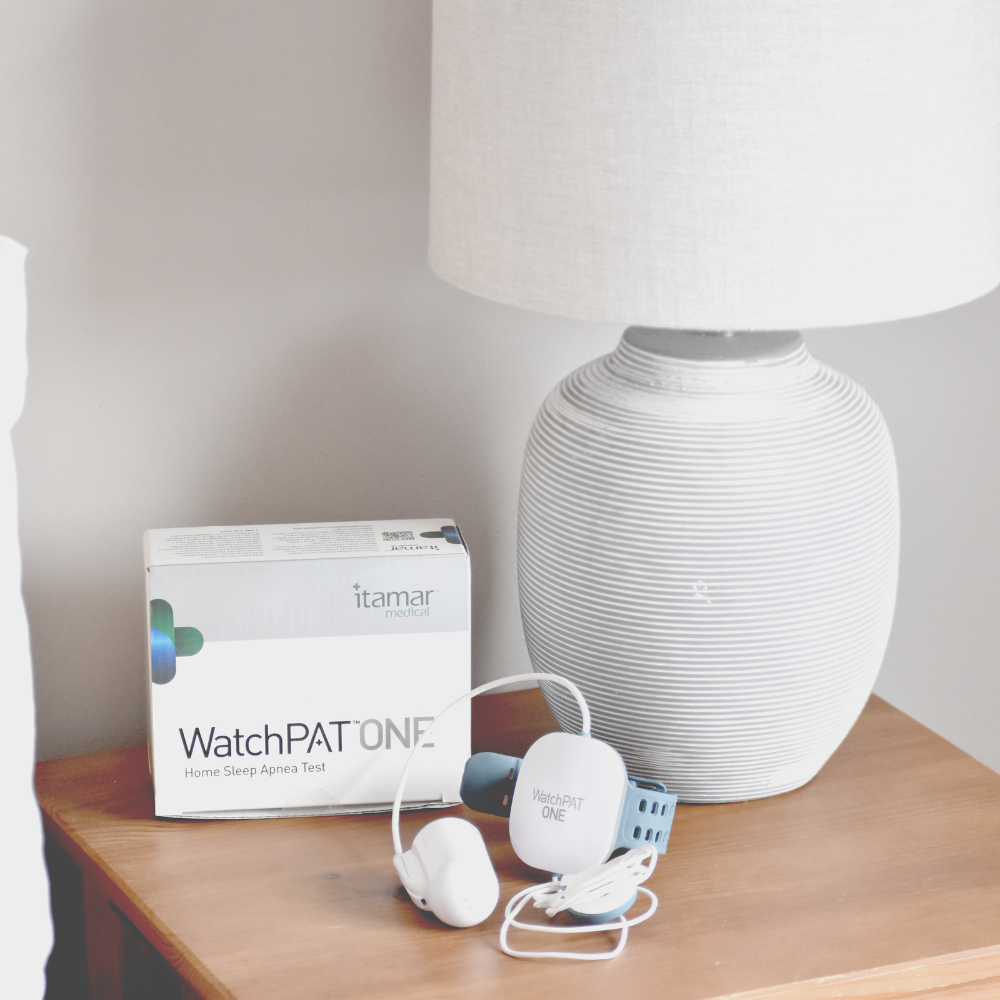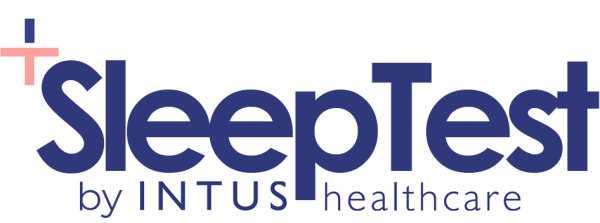Fact Checked
Intus Healthcare’s writers, customer service team, and sleep experts review and ensure this information is accurate.
Last updated on March 31st, 2025 at 10:50 am
Millions of individuals throughout the United Kingdom suffer from Obstructive Sleep Apnoea (OSA).
Untreated OSA can lead to many other health conditions. Not only will a lack of sleep lead to daytime tiredness and difficulty concentrating, but OSA has been linked to health issues, including type 2 diabetes and cardiovascular complications.
Scientists have found a correlation between a lack of sleep and Atrial Fibrillation (AFib).rhythm. This article will discuss the link between Sleep Apnoea and Atrial Fibrillation.
Table of Contents
What is Atrial Fibrillation?
Atrial fibrillation is an irregular heart rhythm. Studies estimate that this condition affects 1.4 million people throughout the United Kingdom(1). Furthermore, it is thought that as many as seven out of 100 individuals over 65 will experience fibrillation(2).
Atrial fibrillation is caused by irregular electrical signals sent to the cardiac muscles. As a result, the chambers in the heart expand and contract at the incorrect times.
The danger results from this occurring continuously and frequently. Over time, your cardiac muscles can thicken, and your blood pressure can become dangerously high. In severe cases, a stroke or other heart complications can occur.
The connection between sleep and Atrial Fibrillation
Sleep has the potential to influence Atrial Fibrillation (Afib). The connection between Afib and sleep can differ significantly from person to person.
Therefore, it is crucial for individuals dealing with this condition to work closely with their healthcare provider to create a personalised treatment plan that addresses both their cardiac health and their sleep-related concerns. Insufficient sleep, characterized by both insufficient duration and disturbed sleep patterns, can potentially play a role in the onset or worsening of atrial fibrillation (Afib).
Sleep deficiency can trigger inflammatory responses, heightened activity in the sympathetic nervous system, and alterations in cardiac autonomic function, all contributing factors to the development of this condition. Additionally, the body’s internal clock, known as the circadian rhythm, may have an influence.
It is common for Afib episodes to exhibit a daily pattern, with a greater likelihood of occurrence in the early morning hours, possibly linked to natural fluctuations in heart rate and blood pressure throughout the sleep-wake cycle.
Can Sleep Apnoea cause Atrial Fibrillation?
Yes, Sleep Apnoea can be a contributing factor to the development or exacerbation of atrial fibrillation (Afib). Here’s why:
- Intermittent Oxygen Deprivation: Sleep apnoea is characterized by repeated interruptions in breathing during sleep, leading to intermittent drops in blood oxygen levels. These episodes of low oxygen can stress the cardiovascular system, increasing the risk of irregular heart rhythms like Afib.
- Sympathetic Nervous System Activation: Sleep apnoea often results in arousals from sleep as the body tries to restore normal breathing. These arousals can trigger the release of stress hormones and activate the sympathetic nervous system, leading to increased heart rate and blood pressure. Over time, this chronic activation of the sympathetic nervous system can contribute to the development of Afib.
- Inflammation: Sleep apnoea is associated with chronic inflammation in the body, as evidenced by elevated levels of inflammatory markers. Inflammation can promote changes in the heart’s structure and electrical properties, making it more prone to arrhythmias like Afib.
- Endothelial Dysfunction: Sleep apnoea can impair the function of the endothelium, the inner lining of blood vessels. This dysfunction can lead to reduced nitric oxide production, which is essential for maintaining healthy blood vessels and regulating blood pressure. Endothelial dysfunction can contribute to the development of cardiovascular conditions, including Afib.
- Increased Pressure on the Heart: The recurrent surges in blood pressure and the added stress on the heart caused by untreated sleep apnoea can lead to structural changes in the heart, such as left atrial enlargement. These changes can create conditions conducive to the initiation and maintenance of atrial fibrillation.
It’s important to note that not everyone with Sleep Apnoea will develop Afib, and the relationship between the two conditions can be complex. However, individuals with sleep apnoea, especially if left untreated, are at an increased risk of developing or worsening Afib.
How do you know if Sleep Apnoea is affecting your heart?
If you already have Sleep Apnoea and it has not been treated, here are some Atrial Fibrillation symptoms at night to look out for:
- Breathing heavily in your sleep
- Feeling anxious when you wake up
- Experiencing night sweats
Why does my Afib get worse at night?
Sleep Apnoea causes your body to wake up throughout the night whenever an upper airway obstruction occurs. This reduces the amount of oxygen reaching your body. These frequent sleep interruptions cause poor REM (Rapid Eye Movement) sleep, a key role in your restorative sleep cycle. Decreased REM sleep and constant awakenings throughout the night have been linked to Atrial Fibrillation.
So, what steps can you take if you suspect you may have Sleep Apnoea?
Detecting the presence of Obstructive Sleep Apnoea is the initial step in reducing the risk of developing Atrial Fibrillation.
A Sleep Apnoea test is a fast and effective way to determine if you have the sleep disorder. If you are found to be suffering from OSA, therapy such as using a CPAP (continuous positive airway pressure) machine can treat the condition and alleviate symptoms.
Does CPAP improve Atrial Fibrillation?
Using a CPAP machine prevents breathing pauses (Apnoea’s), taking the strain off of your heart and reducing the risk of Atrial Fibrillation. If you already suffer from Afib and develop OSA, using a treatment for the sleep disorder can help increase the success rate of your Afib treatment.
The health of your heart should never be taken for granted. Therefore, recognising and addressing any symptoms is the best way to avoid potentially life-threatening situations.
Order an In-Home Sleep Apnoea Test today
Our Sleep Apnoea tests can determine if you have OSA from one night of recorded sleep; our expert sleep technicians provide you with results in two working days. Your recommended treatment method will be included in your results so you can start managing your symptoms immediately.

Home Sleep Apnoea Test
The test monitors your heart rate, snoring intensity, blood oxygen levels, body positioning, and more, providing accuracy comparable to testing used in sleep clinics for in-depth sleep analysis.
The simple-to-use test takes just one night to complete, and results are returned within two working days after completion.
Our experienced NHS-qualified sleep professionals independently analyse all studies, providing follow-up advice and support.
Sleep Apnoea and Atrial Fibrillation are closely linked; if you show signs of one or both of the conditions, please speak to your healthcare provider. If you have any questions or concerns about your symptoms, please do not hesitate to contact us.
About Our Editorial Team
Danni is a degree-educated content writer passionate about helping those with Sleep Apnoea sleep better; she works closely with our clinical and customer care teams to ensure that each article is thoroughly researched and accurate.
Her writing aims to inform, support, and advise readers about Sleep Apnoea, helping to raise awareness and promote effective treatment options.
She has written many health-focused articles, reaching hundreds of readers annually, to help people sleep better and live healthier lives.
Lateisha King is an experienced Sleep Clinician with advanced training in polysomnography and respiratory health.
With over six years of experience, including at the prestigious Guy’s and St Thomas’ NHS Foundation Trust Hospital, she has conducted and reviewed more than 500 diagnostic sleep studies.
Her expertise in sleep science ensures that all articles align with the latest data and treatment protocols, providing readers with trustworthy and practical advice to improve their sleep health and overall well-being.
REFERENCES
- NICE (2023) Atrial fibrillation: How common is it?, National Institute for Health and Care Excellence. Available at: https://cks.nice.org.uk/topics/atrial-fibrillation/background-information/prevalence/. Accessed: 26 September 2023.
- British Heart Foundation, B. (2017) What is atrial fibrillation?, BHF. Available at: https://www.bhf.org.uk/informationsupport/heart-matters-magazine/medical/what-is-atrial-fibrillation. Accessed: 26 September 2023.
- Weingarten, J. and Chowdhuri, S. (2019) Patient education | Information Series – American Thoracic Society, ATS Patient Education Series. Available at: https://www.thoracic.org/patients/patient-resources/resources/obstructive-sleep-apnea-in-adults.pdf. Accessed: 28 September 2023.





